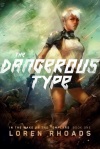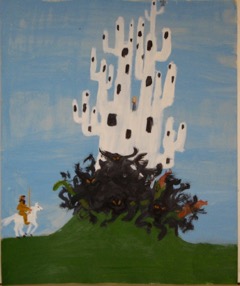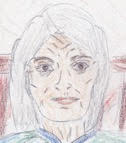I am pleased to open up the Stories of Perseverance blog with a posting by Jason S. Ridler, PhD. Jason was a classmate of mine at the Odyssey Writing Workshop in 2005. Our desks were next to each other and he never ceased to amaze me with his wealth of knowledge about the genres of Fantasy, Science Fiction, and Horror, the books, the authors. He had so many ideas, and such a great sense of humour. After Odyssey, Jason and a couple of other classmates of ours challenged each other to write a story a week for a month or two. At one point he had 50 stories circulating the slush piles, and he racked up hundreds of rejections that first year.
When I asked Jay to guest blog for me, once again, I was blown away by what he had to say. Jay, you inspire me.
Sherry
CATASTROPHE AND TRANSFORMATION: ONE WRITER’S VIEW OF SURVIVAL AND SUCCESS
By Jason S. Ridler, PhD.
WARNING: This article will not end with me being rich and famous, having a bestseller or a million-dollar movie deal, or even being able to quit my day job. Nor will it instruct you on how to hit those targets. If those are your goals, please, go elsewhere. It is inspired by the recent works of Rachel Nabors, Carrie Vaughn and Kameron Hurley on work, creativity, and careers.
Summer 2013. My life collapsed. My marriage was ending. I was unemployed. And my mother was diagnosed with and then killed by four different cancers. I had three of the five most stressful psychological crises happening simultaneously. All certainty, stability, and normalcy shattered. Including my ideas about art, writing, and money. I say this because catastrophe, while horrific, can be transformative. It was for me.
Between 2009 and 2013 I struggled with my desire for a writing “career.” After ten years writing short stories, I quested to be a career novelist in the commercial marketplace. I thought I had what it took. My stuff is character driven, full of action and strong dialog, and dark. Much of that ilk was making a mint. Why not me?
But my relentless desire, efforts, and hubris to beat the odds blinded me to this goal’s external hardships (the nature of the marketplace, the Great Recession, etc). Worse, I struggled with accommodating market demands. My novels were afar from what the trade market wanted (novels about wrestling, fat kids, and a thriller with a female lead, which, according to some, might give the dominant male readership syphilis) that they weren’t really accommodations at all. There are other reasons, too. Agent shifts. Bad psychology. Private shit. Bottom line? These works did not sell, let alone generate a career. And it was my fault.
Navigating between what the market wanted and what I was driven to write proved, in hindsight, impossible. I actively despised much of the work I’d read in the genres where I was told I would “best” fit. So I tried to recoup a novel career by publishing my work online during the “Ebook Hysteria” of 2011-2013. Despite polemics about freedom from convention, everyone had a formula or myriad of rules for “success” in this world (series novellas, perpetual content, fantasy and thriller genres, covers with big boobs or chicks holding things, unending PR efforts, publishing everything you ever wrote with shitty covers, writing novels in a week). I tried my best. I wrote five novels in two years. Had covers made. Tried to crank the PR machine. The late Lucius Shepard liked and blurbed one of my novels, which for me was praise from Caesar. But my most common review remains “I never thought I’d like a novel like this one, but I did!” Hardly box-office gold. A few bucks, sure, but I’d made more cash with a pro short story sale. In this world as well, I was financially unsuccessful.
In terms of my career goals, I was fucked.
I’d written eight novels in three-and-half years trying to find the right book, books, or approach for success. I’d also finished 75% of a popular non-fiction book that would have had a real life-saving payday. None of them sold. I was burned out, at the brink, and terrified. I’d failed. Every major effort to make a living as a writer crashed. The amount of self-hate I’d generated was blinding.
Then 2013 happened.
All the writer-career-talk became piss in the wind.
Worrying about how to write a bestseller, or doing a blog tour, or using the advice of every Tom, Dick and Konrath about an ebook revolution. . . all of it is meaningless when you watch a loved one die, end a marriage, give up animals you cared for, or sell what you own to eat. For a blip I hoped publishing might help against the mess I was in. After all, these works were “assets” that I could play. Sadly, hope is desperation in disguise. My agent didn’t save me with a great deal in traditional publishing. My ebooks didn’t save me with those “free” samples generating sales. And no, reading fiction didn’t become a magical land where I could escape. Real life stepped forward, eviscerated me, and there was no magic in the written word. Writing didn’t save me. Family saved me. Friends saved me. And I saved me.
I jumped from grief, to desperation, to survival at mach speed. I juggled the numbing drudgery of finding employment (over seven hundred applications and interviews before one hit), finding a new home (that has no kitchen, but wasn’t decorated with bullet holes), and rebooting my existence in bad economic circumstances. I now viewed all publishing, traditional, indie, and self-publishing, as “The Machine.” The Machine wants what it wants. It’s not malign or benign. It has no personal vendetta. It simply operates under its principles of profit, desire, chance and internal contradictions. If you don’t have what it wants, the way it wants it, when it wants it, it just keeps rolling. In the wake of all these nightmares, I realized I didn’t lose my writing career with The Machine. I never had one to lose.
And I didn’t care. For a year and a half I worked between two and six jobs to regain the essentials of life. I never pined for the days when I had more writing time than most. I didn’t pine for writing at all. If that part of my life had fucked off and died, cool beans. I had to eat. I had to save. I had to keep myself from ending up on the streets or worse.
What little spare time I had went to improv acting, a new vocation. It was a perfect fit. Improv champions failure, working together, and the fun of making a difficult art. There is no Hugo or Nebula or World Fantasy Award for best improviser. And it’s rarely a career. It’s a vocation. All that matters is doing the work. Improv became my “escape” from fifteen-hour days, six days a week, and rekindled a love of art, collegiality, and performance that had suffocated in relentless attempts to become a successful novelist. One of improv’s greatest values is its ethos of “fail.” Failure is terrific. You find new things when you fail because you’re going where you hadn’t gone before. Failure is where things are interesting and unexpected. And failure isn’t done alone, but with a gang of artists that want your failure to be awesome. If you’re not failing, you’re not doing it right. In my old, dead life, failure at writing carried a heavy price and poisonous stigma regarding perceptions of self-worth and investment in the future.
In the wake of 2013, I realized: if I fail at writing, who fucking cared? I had no writing career, no relationship, and The Machine still didn’t know I existed. Being a ghost to that world made me feel like writing again. Back to my punk rock roots. Fuck it. Just do it because you love it, you bastard.
But do what?
There’s an old trick in psychology. If you’ve experienced trauma, do something new that has no relation to the context of said trauma. You generate new memories for your brain to chew on. Improv fit that pistol, and was life-saving. In writing, I abandoned the dead god of novels and moved to comic book scripts. I love comics, but had never attempted them because . . . if you think making money with novels is tough, it’s Shangri La compared to becoming a “professional” comic book writer. But I didn’t care about money, or a career. I had now stabilized my income to a degree where I felt comfortable easing off the gears of work and spending some time writing. I learned comic script format for fun. I found artists to work with, which was fun. And I failed all over the place as I learned the art, the business, and the challenge of working with artists. Some of this sucked bunnies, but I didn’t care. So long as I learned and got better, I enjoyed the challenge.
Soon, I worked with artists I dug. To see my ideas meld with theirs into fully realized comic book pages was like Christmas morning in my brain. We got traction with indie presses. And I learned to write pitches, which I thoroughly enjoyed. I loved working with editors to refine the ideas of a pitch into something better: the exact opposite of my experience with novels (pitches are hard, but take far less time than finishing a novel. So the investment of blood, sweat and tears are lightyears apart). This was a welcome revelation. Nothing has landed yet (please see the WARNING at the start of this piece). And I really want it to. But not because of a big payday. I just really want to write comics, work with artists and editors, and see what happens next. I also rekindled my interest in short stories, and have begun to create wild things free of any external validation or concern.
Novels faded from interest, with three exceptions. My small reputation as a writer of “wrestling” stories got me an invite to write whatever I wanted for the FIGHT CARD series. The result was RISE OF THE LUCHADOR, and I thoroughly dug it, though I haven’t retired to Monaco just yet. I also wrote a short novel for my newsletter group that explores my love of Saturday morning cartoons. I did it for free. It had only one lodestar: have fun. I also reclaimed interest in my ebooks, and worked hard to get them new covers that I liked. None of them have made a mint. But the result made me happy. It was worth the hours of labor teaching high school History and English, adult writing classes, creating curriculum, grading grad school papers, writing pop history articles, and all the other junk I do to survive. I’m also selling short stories again, but the joy is just letting them roll into the strange creatures they are. Rejections arrive, too, but are also meaningless. Keeping my creative life wide, diverse, and renewed, instead of hyper-focused and commercially driven has yielded far better returns and done my mind far more good than when I wrote in genres I hated for a paydays that never arrived. Life is too short to bleed for the wrong muse.
When my mother was dying, two images hit me. One was from the film A DANGEROUS METHOD, about Carl Jung’s relationship with Sigmund Freud. At the end of the film, Jung sits on a park bench in the throes of mental strain, knowing something awful will happen (the Great War). It is followed by a note that after this anguish, Jung emerged into a period of creative flourish and output that lasted until the end of his life. This image haunted me, and does still, because my mother was a passionate fan of Jung’s work (I was not), and I, too, was enduring compounded trauma. The image of Jung on the bench crashed into another, provided by Elizabeth Kubler Ross in one of her books on grief (I can’t return to those books, so this is from memory). Grief can be transformative. The struggle with trauma produces heroes as well as villains. It is awful, painful, and yet inevitable, so if you have your wits about you, it can be a catalyst for profound transformation. Ross noted that we are inundated with pictures of youth and beauty, even within struggle, but what of the Grand Canyon? Its majesty is the result of titanic forces of strife, wrestled within nature for millennium. Traumas caused it to be transformed, and it has endured. That is what makes it beautiful.
The last time I spoke to my mother, she shared a simple truth which I hold very, very dear. In the end, what makes this world worth anything is love. It is the only value that really matters. You can argue against me all you want. You can footnote your answers, dance around my simple statement with dense rhetoric, and even win. Go ahead. I don’t care. See who comes to your funeral, and, by the way, go fuck yourself. Love is all that truly makes life meaningful.
When 2013 destroyed my life, I made a promise. Whatever happened, I would not let the sheer volume of trauma destroy me. It came close. But I did not reach for the bottle. I did not retreat from the world. I did not hand the reins of my existence to anyone else. I let the awe be transformative. And in my creative life, my lodestar would not be money, not status, not stardom. It would be love, whatever shape or form it should take. Comics? Improv? Short stories? History? Spoken word? One-Man-Shows? Plays? Teaching? Even novels? Sure, so long as the love is true. So if The Machine wants to pay me top dollar, I’ll cash the check. If it ignores me, I’ll be too busy doing my thing to notice. But I will love what I make, generate a lot of it, and grab as many dollar-sacks as possible before I, too, am only a memory. If a “writing career” happens, cool beans. Until then, bills will be paid by other means so that I never write for the wrong reasons again.
Also, are you guys hiring?
Jason S. Ridler is a writer, improv actor, and historian. He is the author of A TRIUMPH FOR SAKURA, BLOOD AND SAWDUST, the Spar Battersea thrillers and has published over sixty stories in such magazines and anthologies as The Big Click, Beneath Ceaseless Skies, Out of the Gutter, and more. His popular non-fiction has appeared in Clarkesworld, Dark Scribe, and the Internet Review of Science Fiction. A former punk rock musician and cemetery groundskeeper, Mr. Ridler holds a Ph.D. in War Studies from the Royal Military College of Canada.
Ridlerville! (Blog)
LinkedIn
Subscribe to the Ridlerville Newsletter (history, fiction and more!)

 Persistence of Writing
Persistence of Writing
 August 1971 God’s foot landed on my backside. In three days I ditched 9 years in L.A., found a job at UCSC Extension and a guy with a flatbed to move me. On my balcony up in The Valley, surrounded by redwoods, the river down below, I knew I was home.
August 1971 God’s foot landed on my backside. In three days I ditched 9 years in L.A., found a job at UCSC Extension and a guy with a flatbed to move me. On my balcony up in The Valley, surrounded by redwoods, the river down below, I knew I was home.